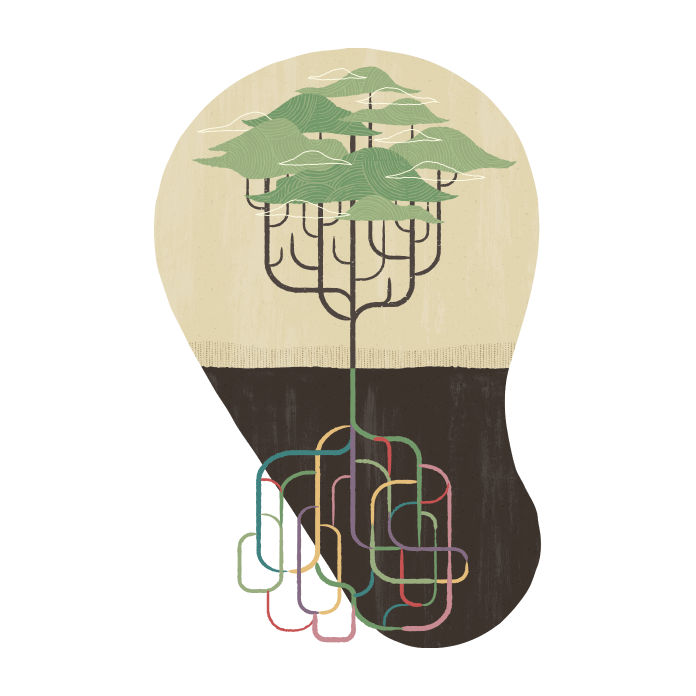Climate Action
Every Oracle UK Cloud Data Centre Runs 100% on Renewable Energy
Our Vision
At Oracle, we are united in our drive to combat climate change and build a better, more sustainable future for all.
Every day, we collaborate with our many stakeholders to make a positive environmental impact. This includes minimising our carbon footprint, investing in renewable energy, responsibly disposing of our e-waste, and engaging with our people to maximise their collective impact on our operations.
Oracle pledge to be Net Zero by 2050 with 50% reduction by 2030.
Oracle's environmental goals include Carbon Neutrality for Scope 1 and Scope 2 emissions by 2025, a Net Zero Target including Scope 1, Scope 2 and Scope 3 emissions by 2050 and a 50% reduction in total emissions by 2030.
Oracle is committed to effective stewardship of the environment. Together, we can build a resilient future for our planet, its people, and its future generations.
Clean Cloud
Oracle already operates an energy efficient and circular cloud. Every Oracle UK cloud data centre, for example, runs entirely on renewable energy, including the dedicated, private dual-region cloud for use by the UK public sector. So do our European data centres in Amsterdam, Frankfurt, and Zurich.
Oracle is now applying the lessons learned to its data centres elsewhere, the aim being for Oracle Cloud to be 100% powered by renewable energy by 2025.
Oracle data centres worldwide have also achieved power usage effectiveness (PUE) as low as 1.15 (an ideal PUE is 1.0) thanks to high utilisation rates, state-of-the-art energy management, and cooling technologies.
Environment-Focused Operations
Sustainability is at the heart of our operations – from managing our use of natural resources to ensuring responsible supply chain practices.
To achieve a more ‘circular’ supply chain, Oracle continues to invest in the Oracle Design for the Environment (DfE) program. This applies reverse logistics to recover and reuse hardware retired by customers and from Oracle’s cloud data centres.
In 2022, for example, we collected 1.35 million kilos of retired hardware assets, of which 99.9% was recycled. In addition, Oracle increased the amount of reground plastics it uses for server parts 15-fold and achieved Energy Star certification for its latest generation of engineered systems.
Elsewhere, we have redesigned hardware shipping pallets, cutting related emissions in half. Lightweight, reusable packaging materials are reducing waste. And by 2025, we want 100% of our key suppliers to have environmental programs in place.
Our People Make the Difference
Sustainability is everyone’s business. We empower our people to be good stewards of the planet, and recognise those who are leading the charge.
Every year, Oracle recognises its Sustainability Champions: employees taking action in their communities to ensure a healthy planet. This includes employees leading volunteering projects, supporting environmental causes, and raising awareness of different commuting options and coordinating environmental activities with local colleagues.
In the UK, Oracle has implemented a highly successful initiative to eliminate single use plastics. From the use of fully compostable food containers, cups, and straws, to the replacement of single use plastic water bottles with recycled glass bottles, Oracle UK is committed to supporting environmental protection.
Learn more about the Green Teams who lead sustainability efforts in our offices
Enabling customers and innovators to put planet and people first
Oracle technology is providing unprecedented opportunities for customers to make a difference and achieve their sustainability goals.
Running on Oracle Cloud Infrastructure, National Grid’s machine learning analyses renewable energy sources 40% more accurately versus prior solutions and reduces query time from hours to minutes. By 2025, the company aims to operate without any carbon-based energy for at least some of the time.
Royal Holloway, University of London (PDF) is using Oracle Cloud Infrastructure to develop a novel way to analyse digital images of rocks and predict their capacity to absorb carbon dioxide. This offers a game changing simulation of carbon capture sequestration scenarios.
UK-based Circulor uses the Oracle Blockchain Platform to record and share the source of all raw materials and conflict minerals in the electronics and automotive industry using distributed ledgers. This prevents unethically sourced minerals from passing through the supply chain. This has enabled Volvo cars to implement global traceability of cobalt used in their electric vehicle batteries.
Unilever cuts transport costs and emissions. Using Oracle’s Transportation Management automated planning algorithms they have yielded insight into Unilever's transport and logistics planning and decision-making.
Ricoh Europe chose Oracle E Business Suite to standardize, streamline, and digitize their front-and back-office processes to ensure our customers and employees can work with us consistently and effectively across Europe, the Middle East, and Africa. By streamlining their operations, they have been able to decommission their legacy systems and reduce their environmental footprint. They have accomplished their goals while reducing their CO2 emissions.
Oracle Industries Innovation Lab
The Oracle Industries Innovation Lab is a unique facility that brings together our customers, our technology partners, and the complete Oracle portfolio to incubate and demonstrate new solutions to complex business challenges. By embedding new technologies into hands-on, simulated industry settings, we help customers experiment, learn, and innovate to stay ahead.
Explore how to reduce your waste, energy footprint, and environmental impact across your business—from idea through production to distribution.
For more information on how Oracle is helping its customers to enable sustainability please reference the following sites.
-
Oracle Enabling Sustainability
Oracle customers making a difference
Sustainability innovation awards
Oracle Solutions Enabling Sustainability
Oracle solutions enabling environment, social, and governance (ESG) reporting
Oracle Fusion Cloud Supply Chain Management to help reduce environmental impacts
-
Oracle Operating Sustainably
Social Impact Report Data Sheet (PDF)
Oracle Environmental Policy (PDF)
